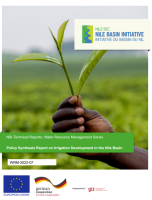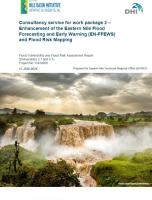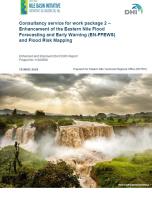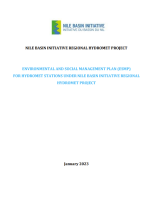Abstract
This report, prepared using the synthesis of a wider set of studies prepared under this project, attempts to find the right pathways, by suggesting the following key policy directions:1. First, the Nile Basin is one-system, through which efforts should be strengthened around achieving greater cooperation and harmonization of water resources policy development and implementation;
2.second, successfully achieving key SDG goals on poverty and food security requires a constant effort at improving the functioning and efficiency of irrigation at all levels — from smallholder
farmers to large-scale systems —to be able to maximize the social, economic and environmental returns to water use (in combination with other inputs);
3. Third, the irrigation economy needs to build coherence and better linkages to other sectors to ensure that investment in irrigation is a structural part of broader sustainable growth strategies
in rural economies, by enabling stronger forward and backward economic linkages.





